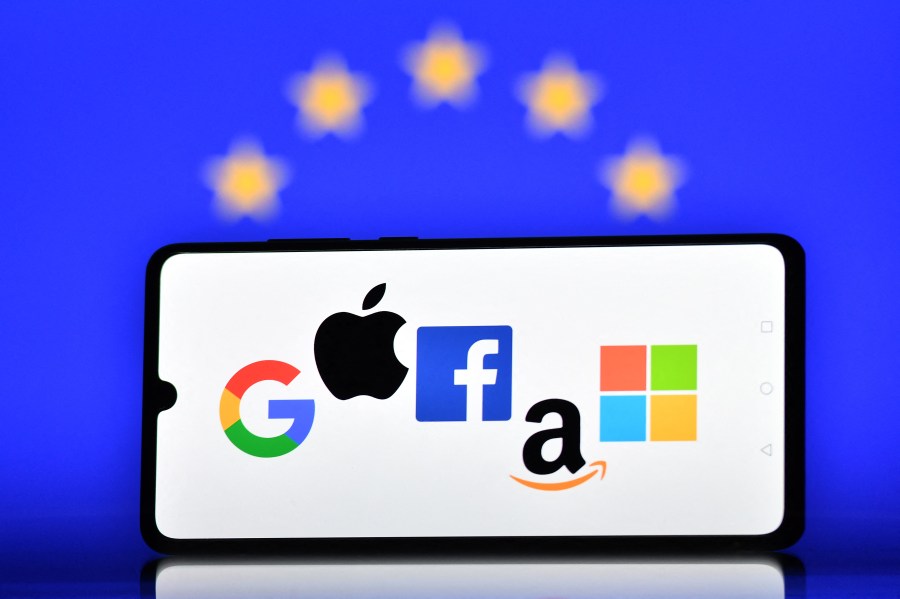How will Musk’s plans for Twitter hold up against Europe’s new tech regulations?

The European Union is pushing to regulate big, global technology firms.
In their latest move, EU negotiators agreed to a broad set of legislation called the Digital Services Act, which aims to, among a long list of other items, require social media companies to make their algorithms more transparent and limit the spread of disinformation on their platforms.
While the language in the DSA still needs to be finalized, it seems clear that platforms like Twitter — regardless of who owns it — will need to adapt to those rules.
Eric Heinze is a professor of law and humanities at Queen Mary University of London. He spoke with Marketplace’s Kimberly Adams about how strict the EU rules will be and what they mean for Elon Musk’s vision for Twitter.
Eric Heinze: It depends on the kind of business you are. They’re very clear in the legislation that they want to distinguish between the giants — Facebook, Twitter, YouTube and so forth— between those and, you know, small startups or just sites that, you know, might just be run by one person. Clearly, though, the primary concern is with the largest and most powerful.
Kimberly Adams: Do you anticipate that these companies are going to eventually comply?
Heinze: If they want to make money, just because the European Union market is far too big. It’s too tempting for advertisers. I suspect that they will be doing a lot to comply. Whether they do everything to comply, that might be a very interesting question.
Adams: How do you anticipate that this European law might affect users in the U.S.?
Heinze: Well, when all of these companies first started, Facebook and Twitter, they assumed that they were going to just follow a First Amendment model, and in a sense the whole world would be subject to the First Amendment. Just the opposite happened. Pretty much the whole world now is subject to the EU law because it’s the more restrictive law.
Adams: How will the DSA effect Elon Musk’s plans to make Twitter more friendly to his version of what he calls free speech?
Heinze: I don’t think it’s likely to be very friendly to his version, and one of the areas of concern to the European Commission — and as we saw already in the case of the Russian invasion of Ukraine, where Russian state media was simply banned from Europe — is that disinformation is a great concern. Of course, during the COVID pandemic, this has also been a great concern. So the European Commission takes that very seriously. If Elon Musk had been running the company years ago, he might have had to force Donald Trump off anyway, however much he seems to be tempting Trump supporters with the prospect of bringing Trump back on, because Trump would’ve clearly have been seen as an important source of misinformation.
Related links: More insight from Kimberly Adams
Heinze wrote about some of the many challenges ahead for Elon Musk in his efforts to promote “free speech” on Twitter.
Yes, Musk may have to contend with the Digital Services Act, but Heinze also argues there never really has been free speech in modern democracies. From blasphemy laws to racial suppression, there’s pretty much always someone limiting what people can and can’t say in public spaces.
In addition to rules for social media companies, it will create new measures to track and limit illegal goods and services from being shared online, including requiring new tracing procedures for businesses in online marketplaces, trying to crack down on the sale of fake designer bags, among other, more serious, issues.
And while groups like Amnesty International welcomed the announcement, calling the DSA a “watershed moment for internet regulation,” others are more skeptical.
Writing in Wired, Asha Allen of the Center for Democracy and Technology’s European office, said it’s still too early to celebrate since we only have the broad strokes of an agreement, and the details have yet to be finalized.
And she argued that the EU’s rule-making process isn’t very transparent or inclusive. So as the final text of the legislation is drafted and amended, there is likely to be a lot of lobbying happening in Brussels by civil society groups, experts and the big tech firms themselves.
The future of this podcast starts with you.
Every day, the “Marketplace Tech” team demystifies the digital economy with stories that explore more than just Big Tech. We’re committed to covering topics that matter to you and the world around us, diving deep into how technology intersects with climate change, inequity, and disinformation.
As part of a nonprofit newsroom, we’re counting on listeners like you to keep this public service paywall-free and available to all.
Support “Marketplace Tech” in any amount today and become a partner in our mission.












